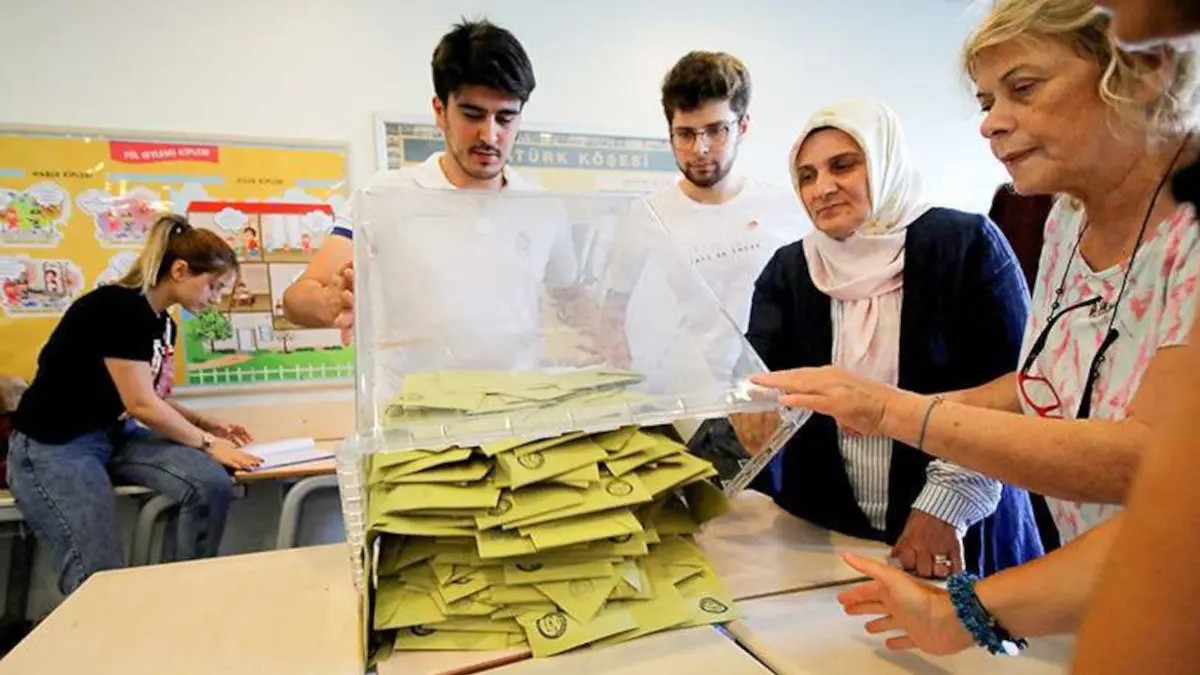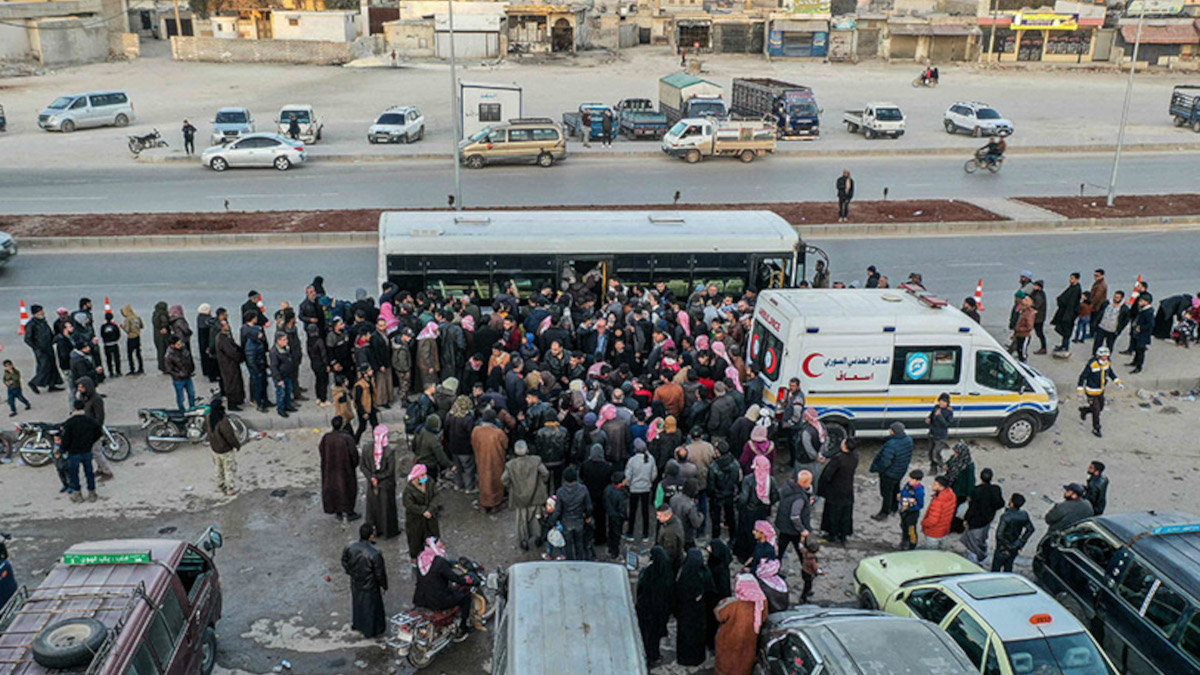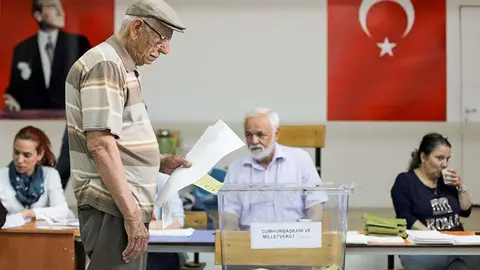The keys to Turkey's most important elections

Turkey decides its destiny on 14 May. Almost 62 million Turkish citizens are called to elect 600 parliamentarians and a new president in what are already the most important and uncertain elections in the country's recent history. The contest between the current president, Recep Tayyip Erdogan, and the main opposition leader, Kemal Kiliçdaroglu, will decide whether Turkey continues on its authoritarian path or moves towards greater democratisation and a 180-degree foreign policy turnaround.
A strong opposition
This is not the first time Kiliçdaroglu has faced elections. He has done so nine times in the past thirteen years and has had to accept defeat in the face of an indestructible Erdogan. Now, however, the times and the coalition are more favourable for a possible victory. The latest polls show the former state official as the favourite.
Kiliçdaroglu is the leader of the largest opposition Republican People's Party (CHP), created by Mustafa Kemal Atatük, the first president and founder of modern Turkey. The 74-year-old candidate is also regarded as the "Turkish Gandhi" for having led the current opposition coalition, known as the Six Table, despite the ideological differences between the six parties that make it up.
A political counterweight to Erdogan, he governs grand coalition strategies, even with the very different socio-political orientations. The Six-Party Table brings together Turkish, Kurdish, conservative, left-wing and right-wing parties in the largest coalition in history. A more inclusive front for voters - more than 6 million young people will vote for the first time - as opposed to Erdogan's more autocratic and populist discourse. However, this is not the only barrier the Justice and Development Party leader faces.

A tarnished reputation
Economic management is what catapulted Erdogan to a few years in power, but it is also what may bring his mandate to an end. The depreciation of the Turkish lira has reached unprecedented levels while inflation has risen from 20 per cent to a stratospheric 80 per cent in the last year and a half alone. The figure is the official one, but experts estimate the rate of the inflationary crisis to reach 100%. Unemployment data are equally grim.
The turning point for Erdogan's reputation was the earthquake that struck the country last February, killing more than 50,000 people and leaving another 1.5 million homeless. Since then, irregular licensing of contracting, speculation and corruption in the real estate boom and the lack of a rapid response to rescue people trapped in the rubble have been the determining factors in his rethinking of the vote in the quake-affected provinces, despite his conservative convictions.

An end to the authoritarian drift?
Arrests of journalists, politicians, activists, press censorship and constitutional changes have been the changes that Erdogan himself has stitched together to secure his grip on power. The arrest of pro-Kurdish leaders has been a particular focus of Ankara's attention in a three-decade-old internal conflict in the country that has left more than 40,000 people dead. Now, Kurds in Turkey are calling for a vote for Kiliçdaroglu in the hope that he will improve their community, the largest in the world.
The so-called 'disinformation law', in force since October 2022, tightened state control over what is published on social media. In the February earthquake, Erdogan censored Twitter to silence criticism of his government. The LGBT community has also been targeted in an increasingly conservative and religious electorate. Erdogan himself this week reproached Kiliçdaroglu for being on the side of this group. A firm bet that could take its toll on the votes of the Z generation.
Hasbahçe içinde gülsün, sonsuza dek yüzün gülsün Tekirdağ! 🇹🇷 pic.twitter.com/35jftruv9M
— Recep Tayyip Erdoğan (@RTErdogan) May 8, 2023
A renewed foreign policy
Turkey's relations with the European Union have been at a standstill for years. However, the process of accession, as Ankara applied for in 1987 as a candidate member, is on Kiliçdaroglu's agenda. EU membership would be an engine of democratisation for Turkey. The Six Table has already agreed to re-establish the parliamentary system and introduce checks and balances.
Brussels would demand the release of political prisoners, guarantees for the functioning of the separation of powers, and dialogue with a civil society to anchor democracy in Turkey. In other words, undoing the steps taken by an Erdogan who has blackmailed EU demands for the reception of Syrian refugees. If Kiliçdaroglu wins, a renegotiation of the migration agreement could be proposed.
Turkey's foreign policy within NATO, and the veto of Sweden's entry into the alliance, could also take a 180-degree turn. Kiliçdaroglu has promised to mend ties with Western partners, lift the controversial veto and also iron out differences with neighbouring Greece.
Bay Kemal'in Tahtası-8
— Kemal Kılıçdaroğlu (@kilicdarogluk) May 8, 2023
Onlar kötülüklerinde debelensin, biz işimize bakalım.
Türkiye dünyanın en iyi doktorlarına ve sağlıkçılarına sahip. Coğrafi olarak da avantajlı bir konumdayız.
Ülkemizi dünyada sağlık ve bakım turizminde daha da büyüteceğiz.
Sağlık Kentleri'ni anlattım. pic.twitter.com/CYCnkJQqgO
Accepting the decision of the ballot box
"My nation will give the necessary response on 14 May. We will not allow Kilicdaroglu, who is hand in glove with terrorists, to divide our homeland," Erdogan told a packed campaign rally on Sunday. "My people will not allow drunks and alcoholics to take the stage," he announced resolutely.
The insults and reproaches have been dozens in the most important campaign for Erdogan, the nationalist autocrat who twenty years after his arrival as head of state sees his power endangered by a favourite and strengthened Kiliçdaroglu.
The question from tonight onwards is whether the candidate who loses the election will accept defeat. Kiliçdaroglu has done so nine times. Erdogan, for the moment, does not plan to find himself in that position.









